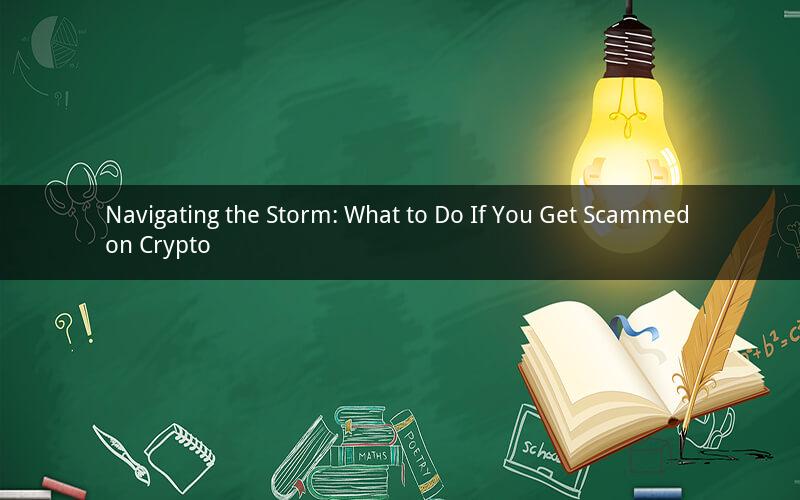
In the world of cryptocurrencies, the allure of high returns often overshadows the risks involved. Unfortunately, scams are a common occurrence in this rapidly evolving market. If you find yourself a victim of crypto scams, it's crucial to know how to handle the situation effectively. This article delves into the steps you should take when dealing with crypto scams, providing insights into prevention, reporting, and recovery.
Understanding Crypto Scams
Before addressing the aftermath of a crypto scam, it's essential to understand the nature of these fraudulent activities. Crypto scams can take various forms, including phishing, Ponzi schemes, and fake exchanges. These scams exploit the anonymity and complexity of cryptocurrencies, making it difficult for authorities to trace the culprits.
1. Phishing: Scammers send fraudulent emails or messages, tricking victims into providing their private keys or personal information.
2. Ponzi schemes: These involve promising high returns on investments, which are actually paid out to earlier investors using funds from new investors.
3. Fake exchanges: Scammers create fake cryptocurrency exchanges to steal users' funds or personal information.
Steps to Take After a Crypto Scam
1. Verify the Scam
The first step is to confirm that you have indeed been scammed. Analyze the situation, and if you suspect a scam, proceed with caution. Here are some indicators of a crypto scam:
- Unusually high returns on investments
- Requests for private keys or personal information
- Pressure to act quickly
- Lack of transparency
2. Secure Your Accounts
If you believe you've been a victim of a crypto scam, change your passwords immediately. This includes your email, social media, and any other accounts that may have been compromised. Enable two-factor authentication to add an extra layer of security.
3. Report the Scam
Report the scam to the appropriate authorities. In the United States, you can file a complaint with the FBI's Internet Crime Complaint Center (IC3). Other countries have similar organizations that handle such complaints. Provide all relevant information, including the scammer's contact details, the amount of money lost, and any other evidence you may have.
4. Contact Your Bank or Cryptocurrency Exchange
Inform your bank or cryptocurrency exchange about the scam. They may be able to freeze any fraudulent transactions or assist you in retrieving your funds. Keep in mind that banks and exchanges may not be able to recover your funds, but they can help you document the incident.
5. File a Police Report
File a police report to document the scam. This can be useful if you decide to take legal action later on. Provide the police with all the necessary information, including your financial institution's contact details and any evidence you have.
6. Seek Legal Advice
Consult with a lawyer specializing in cybercrime or fraud. They can provide guidance on how to proceed legally and may help you recover some of your funds. Remember that legal action may take time and may not always result in a favorable outcome.
7. Learn from the Experience
Use this experience as an opportunity to learn and improve your knowledge of cryptocurrency security. Educate yourself on the risks involved in crypto investments and take steps to protect yourself from future scams.
Preventing Crypto Scams
To avoid falling victim to crypto scams, follow these best practices:
1. Do Your Research: Conduct thorough research on any investment opportunity before investing your funds.
2. Be Wary of High Returns: Avoid investments promising unusually high returns, as these are often scams.
3. Use Secure Platforms: Only use reputable cryptocurrency exchanges and wallets.
4. Keep Your Private Keys Private: Never share your private keys with anyone, as they grant access to your funds.
5. Stay Informed: Keep up-to-date with the latest news and trends in the cryptocurrency market to identify potential scams.
Conclusion
Being scammed on crypto can be a devastating experience, but there are steps you can take to mitigate the damage. By verifying the scam, securing your accounts, reporting the incident, and seeking legal advice, you can increase your chances of recovering your funds and preventing future scams. Remember to learn from the experience and take steps to protect yourself in the future.